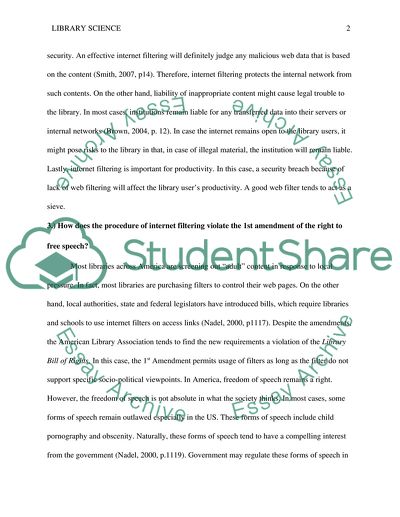Cite this document
(“Library Science: Internet Filtering Essay Example | Topics and Well Written Essays - 2000 words”, n.d.)
Library Science: Internet Filtering Essay Example | Topics and Well Written Essays - 2000 words. Retrieved from https://studentshare.org/law/1700511-library-science
Library Science: Internet Filtering Essay Example | Topics and Well Written Essays - 2000 words. Retrieved from https://studentshare.org/law/1700511-library-science
(Library Science: Internet Filtering Essay Example | Topics and Well Written Essays - 2000 Words)
Library Science: Internet Filtering Essay Example | Topics and Well Written Essays - 2000 Words. https://studentshare.org/law/1700511-library-science.
Library Science: Internet Filtering Essay Example | Topics and Well Written Essays - 2000 Words. https://studentshare.org/law/1700511-library-science.
“Library Science: Internet Filtering Essay Example | Topics and Well Written Essays - 2000 Words”, n.d. https://studentshare.org/law/1700511-library-science.


